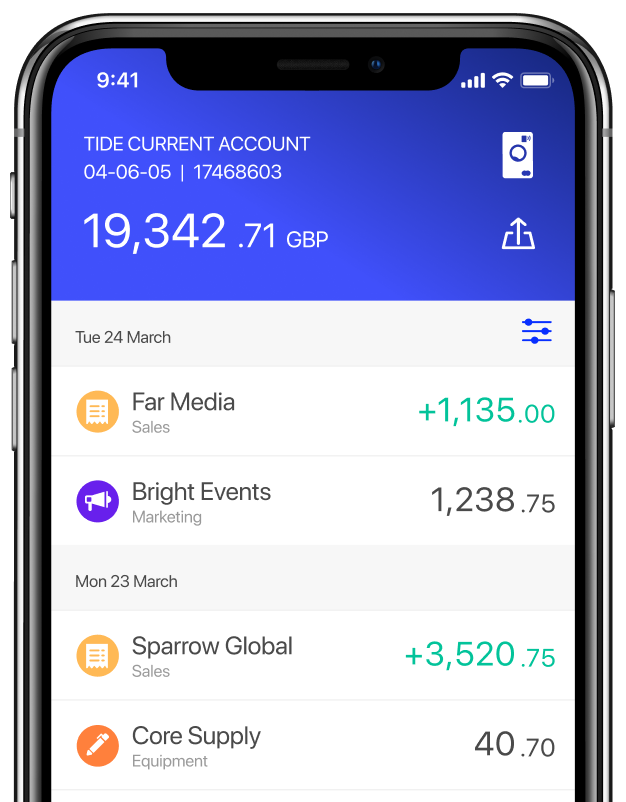
Self Assessment expenses: what can I claim if I’m self-employed?

As a self-employed person in the UK—whether you’re a freelancer, sole trader, or contractor—you will need to pay tax on your earnings and fill out a Self Assessment tax return.
One significant step involved in filling out your Self Assessment is calculating the total expenses you’ve incurred throughout the year.
HMRC permits self-employed individuals and small businesses to deduct some expenses from their overall income to claim tax relief. But not every business purchase is an allowable expense.
In this article, we’ll discuss what allowable expenses are, provide a list of the most common types, and show you how to track and claim your self-employed expenses from HMRC.
Table of contents
- What are allowable expenses?
- What expenses can I claim if I’m self-employed?
- What expenses can I claim if I work from home?
- How do I track my allowable expenses?
- How do I claim my self-employed expenses?
- Wrapping up
What are allowable expenses?
Allowable expenses are business costs that you can deduct from your total profit before calculating your tax bill. The expenses you can claim will depend on whether you operate as a sole trader or limited company.
Top Tip: If you’re a limited company, you can find out which expenses you can claim on your tax return and how to do so in our guide to limited company expenses. 🔑
Before calculating your self-employed allowable expenses, as part of your Self Assessment, you first need to understand the difference between personal and business expenses:
- Personal expenses are costs that are not directly tied to your business and therefore are not considered as allowable expenses
- Business expenses are purchases you make for business purposes only and are considered as allowable expenses
If you use something for both business and personal use, you need to factor in only a percentage of your total cost under allowable expenses.
Example: how to calculate your taxable income
Your income is £50,000 for the year, and you have £6,000 of allowable expenses. You also have a personal allowance (£13,000 in the previous tax year). You can deduct both figures to find your taxable income, which in this case is £31,000.
It’s important to check that you’ve claimed all of your allowable expenses, as an error could lead to you paying an elevated tax rate.
What expenses can I claim if I’m self-employed?
In this section, we’ll cover the different types of expenses you can claim (as specified by HMRC) when you’re self-employed.
1. Office expenses
Office expenses are costs incurred on items that are typically used in your office for less than two years. You can claim for office expenses such as:
- Desk phone, mobile phone, and broadband
- Office supplies
- Office desks and chairs
- Computers
- Postage
- Printing, printer ink, and cartridges
- Computer software on subscription, or bought under 2 years ago
If you use any other type of computer software, you can claim them as capital allowances if you don’t use cash basis accounting.
2. Business premises expenses
HMRC also allows you to claim some of your business premises expenses, including running costs. These include:
- Rent
- Repairs and maintenance of business premises and equipment
- Business water rates
- Utility bills
- Property insurance
- Security
According to HMRC, you can’t claim expenses or allowances for buying or building your business premises.
If you install or replace some equipment, you can claim those costs as allowable expenses if you’re using cash basis accounting. If you’re using traditional accounting, you can claim them as capital allowances.
3. Travel expenses
If your business requires you to travel—whether by car, bus, or air—there are some travel expenses that you can claim, such as:
- Cost of fuel (read more on self-employed mileage allowance)
- Vehicle insurance
- Repairs, maintenance, and servicing for business vehicles
- Hire charges
- Train, bus, air, and taxi fares
- Vehicle licence fees
- Breakdown cover
- Parking costs
If you’re required to travel away from home for business dealings and stay overnight, you’re also eligible to claim the cost of your hotel rooms and the meals you have on those overnight business trips.
Note: You can’t claim the amount you spend on travelling between home and work, any fines you may incur, or other non-business travel costs. If, for example, you use your vehicle for both personal and business trips, you can calculate your allowable travel expenses using simplified vehicle expenses.
4. Legal and financial costs
If you work with accountants, surveyors, solicitors, and other legal professionals, you can include the costs of their professional services and insurance premiums in your allowable expenses.
Additionally, you can also claim some financial costs, such as:
- Interest on bank and business loans
- Bank, overdraft, and credit card charges
- Leasing payments
- Insurance policy costs
- Alternative finance payments
- Hire purchase interest
If you’re using cash basis accounting, you can only claim up to £500 on interest and bank charges. Bad debts are also not considered due to cash basis accounting only recording received income.
With traditional accounting, you can, as you include it in your business’s annual turnover.
Additionally, HMRC states that you can’t claim the following:
- Bad debts that aren’t correctly calculated
- Debts excluded from your turnover
- Debts related to the disposal of fixed assets
5. Marketing and advertising
You can claim tax back on the majority of marketing and advertising expenses, which also extends to hosting and maintaining your business’s website. Other allowable expenses include:
- Advertising in newspapers
- Trade or professional journals
- Bulk email ad campaigns
- Free giveaways and samples for promotion purposes
- Any trade or professional organisation’s membership, related to business
6. Clothing expenses
Any clothing needed to wear for work, including uniforms and protective clothing, are allowable expenses.
If you’re in the entertainment business, you can also claim back the costs of costumes and special gear.
Everyday clothing worn to work isn’t included.
7. Stock and raw materials
You can also claim tax back on:
- Items you resell, such as stock
- Raw materials that you use to make your products
- Direct costs of producing goods
Just like with other expenses, you can’t claim items you initially bought for personal use but are looking to sell. You’re also unable to claim the depreciation expenses of equipment you own and are looking to sell.
8. Staff expenses
HMRC considers both staff and employee salaries as allowable expenses. But there are a few other costs that you can claim back, such as:
- Pensions
- Employer’s National Insurance
- Benefits
- Bonuses
- Agency fees
- Subcontractors
Note: You can also claim allowable business expenses for any training courses that help you improve your skills and knowledge of your business. However, HMRC strictly states that the training must be related to your business.
9. Professional insurance
In some circumstances, you may be required to take out professional insurance, all of which can be claimed as allowable expenses. These include:
- Public liability insurance
- Professional indemnity insurance
- Employers liability
- Contents insurance
- Travel insurance
10. Charitable donations
According to HMRC, all charitable donations are 100% tax-free.
So, if you’re a business that gives money to charity, then you can include those donations as allowable expenses on your Self Assessment tax return.
This includes making donations directly from your wages, pension, land, property, or shares, or through Gift Aid.
What expenses can I claim if I work from home?
As a self-employed individual, you might run your business from home.
This means you’ll only be able to claim part of your home utility bills using a flat rate based on the hours you work from home each month. Some of these bills may include:
- Heating
- Electricity
- Mortgage interest
- Council tax
HMRC states that you can only use simplified expenses if you work from home for a cumulative of 25 hours or more per month.
Here’s a table to help you work out the expenses you can claim:
| Hours of business use per month | Flat rate per month |
| 25 to 50 | £10 |
| 51 to 100 | £18 |
| 101 and more | £26 |
Example: how to calculate your allowable business premises expenses for the year
If you worked from home for 80 hours every month for six months and then 120 hours for each of the remaining six months, this is how you’d calculate your allowable expenses for the year:
6 months x £18 = £108 (for 80 hours)
6 months x £26 = £156 (for 120 hours)
Total claimable amount: £108 + £156 = £264
Note: Before using simplified expenses, make sure you compare the flat rate with your actual costs to see if using one method can save your business more money than the other. You can use HMRC’s simplified expenses checker to find out.
How do I track my allowable expenses?
Keeping on top of your business expenses is vital for several reasons.
As a sole trader, having accounting software can save you a lot of time and take the hassle out of bookkeeping, tax returns, and much more.
At Tide, our accounting software and add-ons allows the self-employed to manage their financial records and transactions all in one place.
Tide Accounting automatically categorises your transactions, shows you outstanding bookkeeping tasks and provides you with estimates of your income and expenses to make filing Self Assessment a breeze, all from the Tide platform.
How do I claim my self-employed expenses?
To claim some or all of your expenses, simply add up all your allowable expenses for the year and enter the total amount on your Self Assessment tax return.
While HMRC doesn’t require any proof of expenses when you submit your tax return, that doesn’t mean you shouldn’t keep a record of all the costs incurred as evidence.
The government can request proof at any time, so it’s good practice to maintain accurate records; receipts, scanned images, and photographs all count as proof of expenses.
Wrapping up
Completing your Self Assessment helps you determine and pay the right amount of tax to HMRC by deducting allowable expenses. In some cases, HMRC may even end up owing you money.
To avoid getting into legal trouble, make sure you complete your tax return and pay any outstanding amount to HMRC before the deadline for the tax year. If you have any queries, you can get help from HMRC’s Self Assessment team online or over the phone.
Photo by George Milton, published on Pexels




